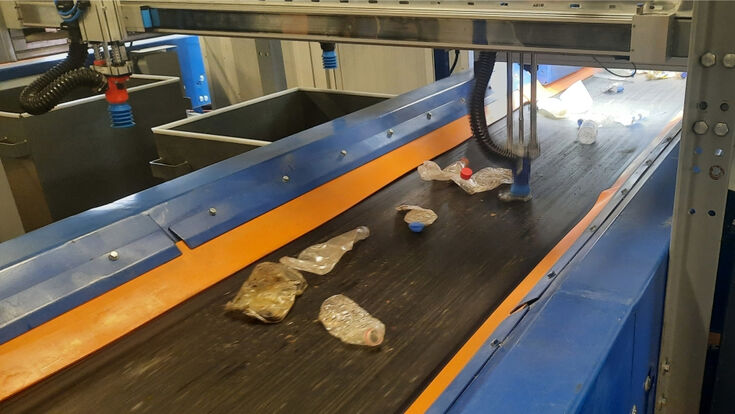Discovering the Importance of Reclaim Waste in Sustainable Waste Administration Campaigns
In the realm of sustainable waste administration, the idea of redeeming waste emerges as a vital part that demands focus and consideration. By taking a look at the elaborate interaction in between waste reclamation and sustainable waste administration initiatives, we start to unwind a narrative that extends beyond traditional waste disposal techniques.
Value of Reclaiming Waste
Why is recovering waste necessary in lasting waste monitoring methods? Reclaiming waste plays a vital role in lasting waste monitoring by minimizing the amount of waste sent to landfills, conserving natural sources, and minimizing ecological impact. By recovering waste products with repurposing, recycling, or upcycling, useful resources can be recovered and reintroduced into the production cycle, minimizing the requirement for virgin materials. This not only decreases the strain on natural deposits yet also helps in reducing power intake and greenhouse gas exhausts related to the removal and handling of basic materials.
Furthermore, recovering waste fosters a circular economic situation where materials are recycled and reused continuously, advertising a much more reliable and sustainable usage of sources. It likewise contributes to the creation of green jobs and financial growth in the recycling and waste administration sector. By including waste recovery techniques into waste administration neighborhoods, businesses and techniques can move in the direction of a more lasting future, where waste is viewed not as a burden but as a useful source.
Advantages for the Setting
In the realm of sustainable waste administration, the method of redeeming waste not just saves natural deposits and decreases waste sent to garbage dumps however also yields considerable advantages for the environment. By recovering waste products, such as metals, glass, plastics, and raw material, the environmental impact of source removal and manufacturing is decreased (Reclaim Waste). This results in decreased energy consumption, decreased greenhouse gas emissions, and lower degrees of air and water pollution related to drawing out resources
Furthermore, reclaiming waste aids in the preservation of biodiversity and natural environments. It reduces the need for garbage dump room, therefore lessening land deterioration and habitat damage. Furthermore, the process of recovering waste typically includes recycling and repurposing materials, which consequently lowers the need for new products and the associated power and resources needed for their manufacturing.
Payment to Circular Economy
Playing a critical role in fostering sustainability and resource effectiveness, recovering waste makes a significant payment to the round economic climate. By reintroducing disposed of materials back into the manufacturing cycle, reclaiming waste minimizes the demand for virgin sources, thus decreasing the overall environmental effect of resource removal and usage. This process aligns with the concepts of the circular economy, which highlights making the most of the value and energy of sources via closed-loop systems.
As an outcome, redeeming waste helps to create a much more resilient and sustainable economic climate that is much less dependent on limited resources and prone to disruptions in the supply chain. Eventually, by incorporating waste improvement practices right into waste monitoring visit this site communities, organizations and efforts can actively contribute to constructing a more round and regenerative economic climate.
Decreasing Garbage Dump Waste

In addition, executing waste-to-energy modern technologies can help in decreasing the volume of waste sent out to landfills while likewise creating energy. Encouraging using reusable items, such as buying bags and water bottles, can significantly lower the amount of waste that inevitably winds up in garbage dumps. Education and recognition projects on correct waste disposal and the importance of reducing, reusing, and recycling can also play a critical role in reducing land fill waste. By prioritizing the decrease of landfill waste, lasting waste management practices can be improved, leading to a healthier environment and economic situation.

Future Ramifications
Considering the rapid innovations in modern technology and developing environmental difficulties, the future implications of sustainable waste administration are poised to reinvent current techniques. The fostering of innovative innovations such as expert system, Net of Things (IoT), and blockchain can considerably enhance waste tracking, sorting, and recycling procedures. These innovations allow real-time monitoring of waste streams, recognition of recyclable materials, and boosted performance in source allocation.
Moreover, the change towards a circular economy version, where resources are reused, reused, or upcycled, will come to be increasingly prevalent. This transition not only lowers the reliance on virgin materials however additionally lessens waste generation, causing a much more sustainable and eco-friendly waste monitoring method.
Furthermore, the assimilation of sustainable waste management techniques into wider sustainability schedules is expected to obtain grip. Industrial waste water treatment. Organizations and governments worldwide are discover this info here recognizing the importance of waste decrease and recycling in combating climate modification and advertising a circular economic situation. Consequently, policies and laws supporting sustainable waste administration efforts are likely to end up being a lot more stringent, driving industries towards more green methods
Final Thought
Finally, the relevance of reclaiming waste in lasting waste monitoring campaigns can not be overemphasized. By recovering waste, we can decrease ecological effect, add to a circular economic climate, and lessen land fill waste. This technique holds guarantee for future ramifications in waste administration techniques, emphasizing the relevance of resource efficiency and ecological sustainability. Redeeming waste is a critical step in the direction of producing a more lasting and eco-friendly future.
By taking a look at the intricate interaction in between waste recovery and lasting waste management campaigns, we start to decipher a narrative that extends past standard waste disposal methods. Redeeming waste plays a vital duty in sustainable waste monitoring by reducing the amount of waste sent out to land fills, conserving all-natural resources, and decreasing environmental influence. By incorporating waste improvement methods right into waste management areas, organizations and approaches can move in the direction of a more sustainable future, where waste is viewed not as a worry but as a useful source.
